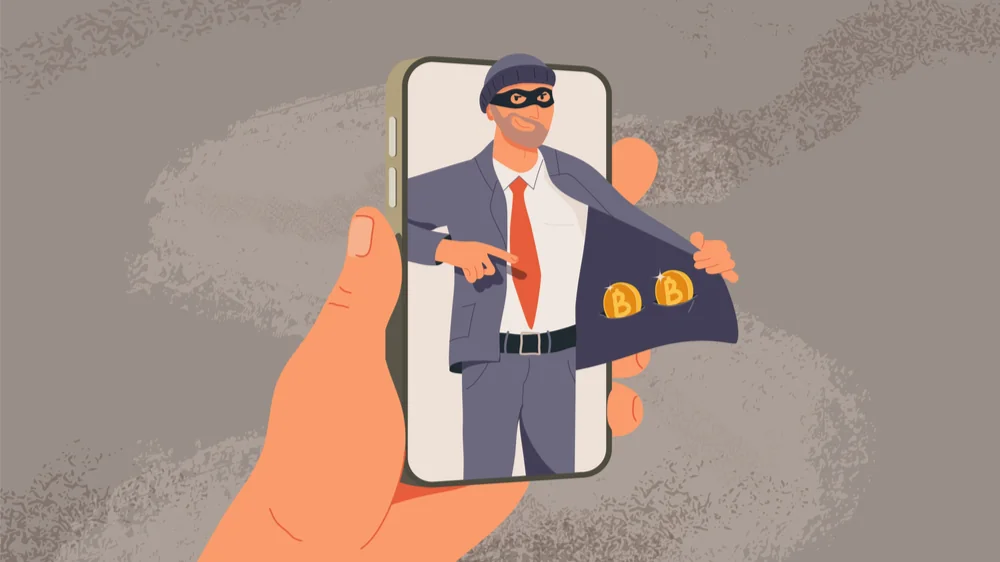Telling Genuine DAOs and Scams Apart
DAOs can be effective organizational structures. According to the latest figures, the total treasury of all DAOs (registered) is around $21 billion, indicating trust in an evolving market. Interest in crypto and crypto-based longevity projects continues to grow, and they can deliver genuine value. For example, VitaDAO has deployed over $4 million into longevity projects, including research into senolytic CAR-NK cells and therapeutics discovery.
However, as with the majority of crypto-based projects, DAOs are quite new, and as with any new technology, there are scammers seeking to profit alongside legitimate growth. Although there are no reliable numbers for DAO fraud, crypto scams are known to be lucrative ventures for cybercriminals. The Federal Trade Commission (US) announced that in 2021 alone over $1 billion was lost to crypto scammers.
Although some disingenuous groups use coarse means that can be fairly easily identified, others engage in more devious methods. Crypto technology is an industry that lacks regulation, leaving many people vulnerable and compacting a common issue. Therefore, it’s largely up to the individual to filter the legitimate DAOs from the scams.
Research the DAO
Many DAOs are well established, which makes finding information about them easier. Others are just starting out. Although this doesn’t necessarily make them scams, it does mean that they warrant more in-depth research. For both established and new DAOs, reviewing information about the project team members along with their experience and qualifications is a good start. Explore the DAO’s website, social media, roadmaps, whitepaper and other technical documentation, if available. Although not all DAOs will have all of these things, the absence of all or most of them may be a warning sign that an organization is not legitimate.
Evaluate transparency
How much is the project team willing to share about the projects? DAOs are decentralized organizations, and they function by people getting involved, so a lack of transparency and intense secrecy at an early stage is a potential red flag. However, it is natural for organizations to have some ‘trade secrets’, so don’t expect every detail to be disclosed up front. As a general rule, look for projects that aim to foster trust and open communication, not hide it.
Learn more about the stakeholders
All DAOs operate a little differently, so it isn’t always easy to identify their key stakeholders, founders, or board members. To establish the legitimacy of a DAO, look at the key figures, whether they’re board members, staff, or advisors. If this roster includes well-respected figures, it’s a good sign for the legitimacy of the DAO. Verify this information with third parties, as sophisticated fraudsters can duplicate websites and add people without their consent.
Dive into the community
DAOs are often community-driven, so their interactions on the various platforms, or lack thereof, can tell you a lot about them as organizations. Being active and engaging with the community is a good sign for a DAO. Question answering, transparency, and community updates are positive signs. On the other hand, scams often spend more time on marketing and hype, which is often an essential part of organization-building but is a red flag as a primary activity.
Three actions to take before joining a DAO
- Stop. Always take time to think before jumping in. Learn more about the DAO via the online platforms and social channels, such as Discord. Never feel pressured to pay a sign-up fee or give away your money, as this is the hallmark of a scam.
- Ask. If you don’t understand what a DAO is about or if its aims aren’t clear, don’t be afraid to ask questions. If the DAO is genuine, it is most likely open to helping others learn about its aims, objectives, and details.
- Keep safe. The dangers of suspicious DAOs are the same as with any other online activity. Avoid sharing your personal data or financial information, as the request is a likely signifier of fraud. If this has already happened, get in touch with your bank and the relevant authorities in your area.
What features should a legitimate crypto project have?
Even if it’s legitimate, how a DAO operates can have substantial impact on the projects it undertakes. These are the most crucial factors:
- Transparent decision-making: A DAO should have open information about its protocol, voting system, and the way in which it decides to undertake projects.
- Autonomy: A DAO should be able to make its own decisions and be independently able to execute its own actions.
- Technology: A DAO should use technology appropriate to its aims, whether that involves smart contracts, crypto tokens, or blockchain.
- Token governance: A DAO should allow members to vote and take part in the DAO. With tokens, members can use voting rights to influence decisionmaking.
- Incentives: A DAO may choose to offer incentives such as tokens as rewards for participation and activities that aid the DAO. These incentives should be offered fairly and as rewards for genuine contributions.
- Security: Although blockchain technology is known to be secure, hacks do happen. A good DAO takes proper care of its security with code audits and bug bounties.
- Community governance: DAOs are community-driven, which is why the voice of community matters. Having practices in place for voting on issues or onboarding new members is a good sign.
Summary
DAOs are a relatively new addition to the crypto arena, utilizing blockchain and crypto technology for specific organizational aims. Like with any new technology, there are people that use it for good and people who are quick to take advantage of others.

